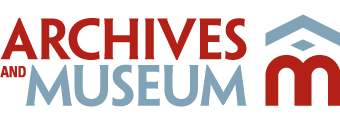Edmonton Public School Board celebrates 140 years
Archives and Museum, the curator of the Division’s history, is marking 140 years of the Edmonton Public School Board. This 140th anniversary recognizes the official incorporation that allowed the Board of Trustees to collect taxes from the residents of Edmonton.
The legal organization of the School District of Edmonton of the Northwest Territories, Protestant Public School District #7, was consummated on February 3, 1885, under the education department of the Northwest Territories.
On Saturday, March 21, 1885, an election for the trustees of the newly formed Edmonton Protestant Public School District was held in the public school house (Edmonton 1881 School). The board of trustees of the former Edmonton School District was re-elected by acclamation. The implementation of school taxation was crucial for establishing a stable financial foundation for public education in the Edmonton settlement. Prior to guaranteed taxation, the former board of trustees relied on often inadequate voluntary subscriptions.
For more information on research, collections, and the programs and services offered by Archives and Museum, browse our website or email us at archivesmuseum@espb.ca.























